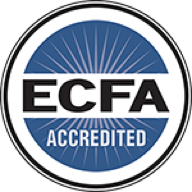One of the significant advantages of a 403(b)(9) church plan like the one FCMM offers is the opportunity for all credentialed staff members (ordained, licensed, commissioned) to receive the clergy housing allowance tax benefit throughout retirement.
A common question often arises: “How can I get ‘housing allowance’ when I am no longer employed by a local church or serving in the mission field?” The IRS considers all retirement benefits as “deferred income.” Thus, if contributions were made to your retirement account through FCMM when you qualified for the clergy housing tax benefit, then you also qualify for the tax advantage to apply to your retirement benefits, even though you may no longer be serving in a full-time ministry position.
FCMM’s procedure for all retired ministers and missionaries is similar to what is currently practiced by a local church or mission board. However, the Member does not submit a housing allowance request; FCMM designates 100% of distributions as housing-allowance-eligible. The retired minister must keep his actual housing expense records in order to justify the amount of the annual FCMM benefit that actually went to housing expenses. Any amount above those qualified housing expenses or above the fair rental value of the property, whichever is lower, would be subject to income taxes.
Typical expenses that qualify to be included in the allowance are rent or mortgage payments, utilities, property taxes, household repairs, yard care, and furniture. The tax code clarifies that the housing allowance for ministers who own their home is limited to the annual fair rental value of the home (furnished, plus utilities).
Distributions from housing-allowance-eligible-contributed funds in the Retirement Plan are designated by FCMM as 100% housing allowance eligible. The retired pastor must keep records of actual housing expense in order to document the amount of the annual payments that were actually used for housing expenses.
Any amount greater than either (1) those qualified housing expenses or (2) the fair rental value would be subject to income taxes.
If a participant also receives a housing allowance given by a church or employer, the combined total of housing allowance from employer and from FCMM retirement benefits must not exceed actual housing-related expenses or the fair rental value of the home.
Any excess at the end of the year must be reported on your individual Federal Tax form as “other income.”
Local churches and ministries should follow “best practices” to correctly identify those who meet the IRS regulations in order to qualify for the clergy housing allowance tax benefit.

